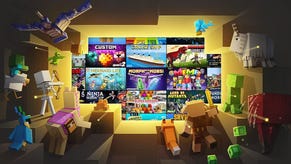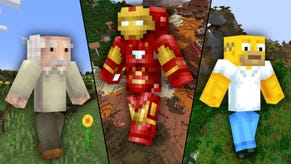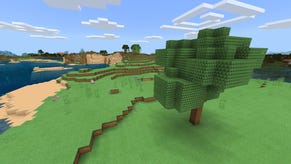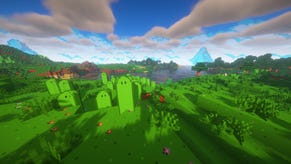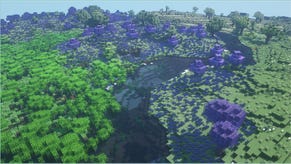The guy who wrote Minecraft's ending says Microsoft doesn't own the copyright
He's put it in the public domain
I knew Minecraft had an ending, but I didn't know that ending consists of an unskippable 9 minute long poem. I also didn't know that last month the author of that poem, Julian Gough, placed it into the public domain, which according to him he's legally entitled to do because nobody at Mojang or Microsoft ever successfully got him to sign a contract.
He now says Microsoft are stonewalling any attempts to contact them about whether or not they own the copyright, and that this silence killed a piece he'd written for an unnamed "global news organisation" because they didn't want to risk drawing the ire of Microsoft's 1700 strong lawer team. That piece was actually an edited version of Gough's blog post from last month, where he explained the situation and submitted the poem to the public domain - while making multiple references to the poem being written by the universe, and also how taking psychedelics lead him to conclude that not allowing himself to be compensated would be a "blockage of the flow of love". It's a trip.
Gough's post is an interesting, if long, read. He talks about how showing Notch a short story lead to him being chosen to write the ending, and then how he wrote that ending while simultaneously discussing payment with Mojang's CEO at the time, Carl Manneh. Notch loved the words, but Manneh apparently got fed up with Gough's self-described "rambling" about "trying to work out what was fair", and told Gough that if he didn't accept his opening £20,000 offer then they'd get someone else to do it. Gough agreed, and was sent the money without ever signing anything.
Mojang wound up sending him a contract a month after Minecraft came out, which Gough didn't look at because "just the sight of it stirred up such negative emotions". Three years later, in 2014 when Microsoft were in the middle of buying Mojang, Manneh sent him the contract again. Gough didn't sign because it handed over total power to do whatever they liked with the ending, along with a non-disclosure agreement. There's a photo of the contract on Gough's blog.
Eventually, Manneh gave up trying to get Gough to sign and told him they didn't need him to anyway. Gough just sat on that for eight years, but then took some mushrooms in the Netherlands and concluded that by staying silent he'd "refused to allow" any of the people who'd been affected by his work to give him "anything in return". Hence the blog post, where he appeals for donations.
That takes us all the way up to yesterday, when Gough tweeted about how that unnamed outlet apparently decided not to run an edited version of the blog because they were nervous about what Microsoft might have up their sleeves. Gough says that outlet had lawers check everything he'd written, and gave it the all clear before approaching Microsoft for comment as a final step.
Gough frames a lot of this in this in eyebrow-raising terms, claiming that he's mostly just disappointed because he thought Notch was his friend. There's a lot of internal wrangling where Gough tries to reconcile his world view with his anger over only getting £20,000 while everyone else earned millions. It's an absorbing read.
He ends with an appeal for us to shelter art and work we like from the viciousness of capitalism, which is a sentiment I'm obviously on board with despite the way Gough wraps up so much of that sentiment in new-agey wibbliness. It reminds me of Kim Stanley Robinson's Mars trilogy, where political conflict embroiling an increasingly terraformed Mars leads to an underground "gift economy" that winds up running parallel to a system where every workplace becomes a collective that outsources their management. I think Gough might like it too.
I've approached Microsoft for comment.




